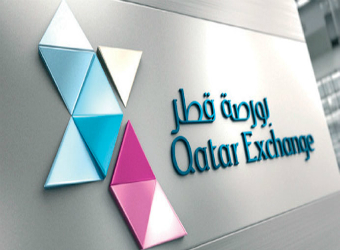After being battered by political turmoil this year, Qatari stocks are set to commence the next one near their cheapest levels relative to emerging-market peers since early 2010.
That’s a change for the nation’s stocks, which traded at a premium for most of the preceding three years.
A selloff triggered by a political spat between Qatar and its neighbors sent valuations plummeting. While politics will remain in focus in 2018, analysts and investors say some shares in Doha are now trading at attractive levels.
The QE Index became the world’s worst performer this year after a Saudi Arabia-led group of nations accused the gas-rich state of supporting terrorism and destabilizing the region — charges the country has denied. While the gauge has trimmed losses the past two weeks on optimism 2018’s budget will support the nation’s economic growth, it’s still down 18 percent in 2017, the second-biggest loss among major indexes globally in dollar terms. It fell 0.3 percent on Sunday.
Here’s what market participants have to say about the prospects for Qatari shares in 2018:
Rami Jamal, a portfolio manager at Doha-based Amwal LLC:
- Qatari shares are trading at “extremely attractive valuations” versus major benchmarks such as MSCI and FTSE emerging markets, as well as compared with regional peers
- “Qatari market offers better valuations, but also a far higher dividend yield”
- In 2018, “investors will position their portfolios favoring companies with higher dividend yields and diversified growth potential”
- After recent budget announcement emphasizing importance of the local private sector, food security and continued infrastructure spending, the fund manager sees value in the logistics and consumer sectors, “where we saw resilience to the recent geopolitical events”
- Increase in global oil prices should reflect positively on the petrochemical sector; selloff provided “a good entry point to select names in the banking sector”
- Introduction of ETFs to the Qatari market should stir both institutional and foreign investors’ appetite
Aarthi Chandrasekaran, the vice president for research at Shuaa Capital in Dubai:
- Third-quarter earnings showed local banks “broadly resilient,” with funding costs under control despite the outflow of non-resident deposits and credit growth superior relative to the regional peers
- Qatari bank’s premium to Gulf Cooperation Council peers as measured by price-to-book is at 25%, down from historical levels of 50%
- Expects government support to lenders to “remain strong, both on the deposits gathering and on the credit growth perspective, as they remain committed to World Cup 2022 infrastructure spending”
- “In the absence of any favorable political resolution, the enticing valuations will take a backseat for now. For 2018, investors will be keen to see how the political standoff pans out — if status quo of the event remains”
- Says Commercial Bank turnaround story looks tempting from a core business view, with price-to-book at 0.7 times 2018 estimate
- Masraf Al Rayan’s recent rally comes on top of positive state budget numbers, “with the hope that Masraf will remain the key beneficiary of the project spending in 2018 given the strong government links through its board”
Simon Kitchen, the head of strategy at Cairo-based investment bank EFG-Hermes:
- “For a lot of regional investors, Qatar has been a bit of a no-go area for a lot of this year. Valuations have come down a lot”
- “There is the risk that some stocks will be pulled out of benchmark indices over the year. That can create opportunity if you have forced selling in good quality names. Then there is a lot of value that opens up”
- Favors Qatar National Bank, Qatar Electricity & Water Co. in 2018
Source: Bloomberg
